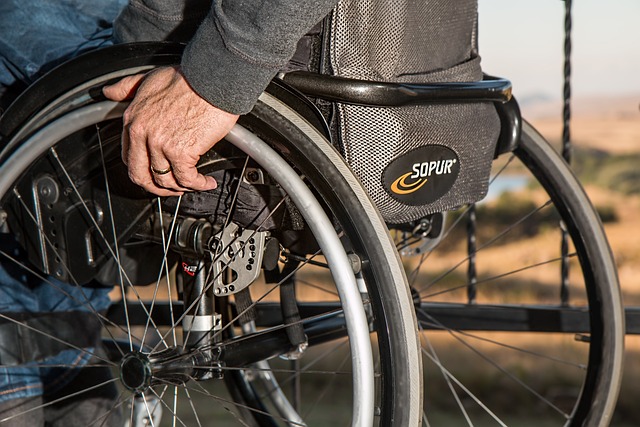In Oregon, a robust system of legal support services protects vulnerable children while upholding parental rights through specialized lawyers, counseling, and advocacy. Free or low-cost assistance is available based on financial need and case complexity, ensuring fairness for all families involved in child welfare cases. Non-profit organizations play a crucial role, offering pro bono representation to advocate for the best interests of children, especially those from marginalized communities. Oregon's comprehensive approach empowers parents, guides them through legal processes, and fosters stable environments for children, making legal support services accessible through various resources and referral systems.
Oregon’s child welfare system, governed by a robust legal framework, ensures the safety and well-being of vulnerable children. This article delves into the state’s legal support services, providing an essential overview for families navigating complex procedures. From understanding eligibility criteria to exploring various assistance forms, we guide you through Oregon’s child welfare legal landscape. Learn about rights, protections, non-profit aid, and resource access, empowering you to effectively participate in the process. Discover the steps to secure the best outcomes for your family through these crucial legal support services.
- Understanding Oregon's Child Welfare System: An Overview
- Eligibility Criteria for Legal Support Services
- Types of Assistance Offered to Children and Families
- Navigating the Legal Process: Rights and Protections
- The Role of Non-Profit Organizations in Legal Aid
- Accessing Resources and Referral Procedures
Understanding Oregon's Child Welfare System: An Overview

Oregon’s child welfare system is designed to protect and nurture at-risk children while ensuring their fundamental rights are upheld. At its core, the state’s approach prioritizes family preservation, safety, and well-being through a comprehensive network of services. This includes legal support services that assist families involved in child protection cases. These services play a crucial role in navigating the complexities of the legal system, advocating for parental rights, and ensuring fair outcomes for all parties.
The state offers various resources, including legal aid organizations specializing in family law and child welfare. These groups provide pro bono or low-cost representation to families, helping them understand their rights, prepare for court proceedings, and challenge unjust practices. By fostering access to legal support services, Oregon strives to create a more equitable system that supports the best interests of children while respecting the dignity and rights of their parents.
Eligibility Criteria for Legal Support Services

In Oregon, legal support services for child welfare cases are designed to ensure that all parties have access to justice and that their rights are protected. Eligibility criteria for these services are based on a combination of financial need and the complexity of the case. Individuals or families facing child welfare proceedings who earn below a certain income threshold can qualify for free legal assistance. This includes representation during court hearings, draftings of legal documents, and guidance throughout the entire process.
Moreover, legal support services may be provided to those with more complex circumstances, such as cases involving cultural or linguistic barriers, disabilities, or unique legal challenges. These services aim to level the playing field, promoting fair outcomes for all involved, regardless of their economic background or case complexities.
Types of Assistance Offered to Children and Families

Children and families in Oregon facing child welfare issues can access a range of legal support services designed to help navigate complex systems and protect their rights. These services include representation by lawyers specialized in family law and child welfare, who can guide parents through the process, ensuring their voices are heard and their best interests are represented. Legal aid organizations also offer counseling and education to equip families with knowledge about their rights and options, empowering them to make informed decisions.
Additionally, legal support services may involve helping families understand and comply with court orders, as well as assisting in fostering stable and safe living environments for children. This can include advocacy for necessary resources and services, such as mental health support, substance abuse treatment, and housing assistance, all crucial elements in the overall well-being of both children and their families.
Navigating the Legal Process: Rights and Protections

Navigating the legal process related to child welfare can be complex and intimidating, but understanding one’s rights is essential for all involved parties. In Oregon, families facing child welfare concerns are entitled to legal support services that safeguard their rights and ensure a fair and just outcome. These services provide crucial guidance throughout the entire process, from initial investigations to any court proceedings.
Legal support ensures parents and guardians are informed about their protections under the law, including the right to counsel, privacy considerations, and the ability to challenge or dispute any allegations made by child welfare agencies. This assistance is vital in helping individuals understand their options, advocate for themselves, and protect their parental rights while ensuring the best interests of the child are at the forefront of these legal proceedings.
The Role of Non-Profit Organizations in Legal Aid

Non-profit organizations play a pivotal role in providing legal support services for children and families in Oregon’s child welfare system. These organizations, driven by a commitment to social justice and community well-being, offer critical assistance where public resources may fall short. They provide pro bono legal representation, ensuring that vulnerable children have advocates who fight for their rights and best interests. By offering specialized knowledge and expertise, these non-profits empower families to navigate complex legal procedures, understand their options, and make informed decisions.
Through legal aid programs, they educate parents about their rights, help them comply with court orders, and advocate for appropriate placements and services. This support is vital, as it strengthens the parent-child bond and improves outcomes for involved children. Moreover, non-profit organizations often collaborate with government agencies and other stakeholders to develop innovative solutions, conduct awareness campaigns, and influence policy changes related to child welfare practices.
Accessing Resources and Referral Procedures

Accessing Oregon’s legal support services for child welfare cases is a crucial first step for families navigating complex legal systems. The state offers various resources to ensure parents and guardians are well-informed about their rights and options during these challenging times. These include hotlines, online directories, and community organizations dedicated to providing guidance and assistance.
Referral procedures typically begin with initial consultations at local social service agencies or non-profit legal clinics. Staff members can assess individual needs and provide direct support or connect families with specialized legal professionals experienced in child welfare law. Many of these services are free or low-cost, ensuring that financial constraints do not prevent access to essential legal support.
